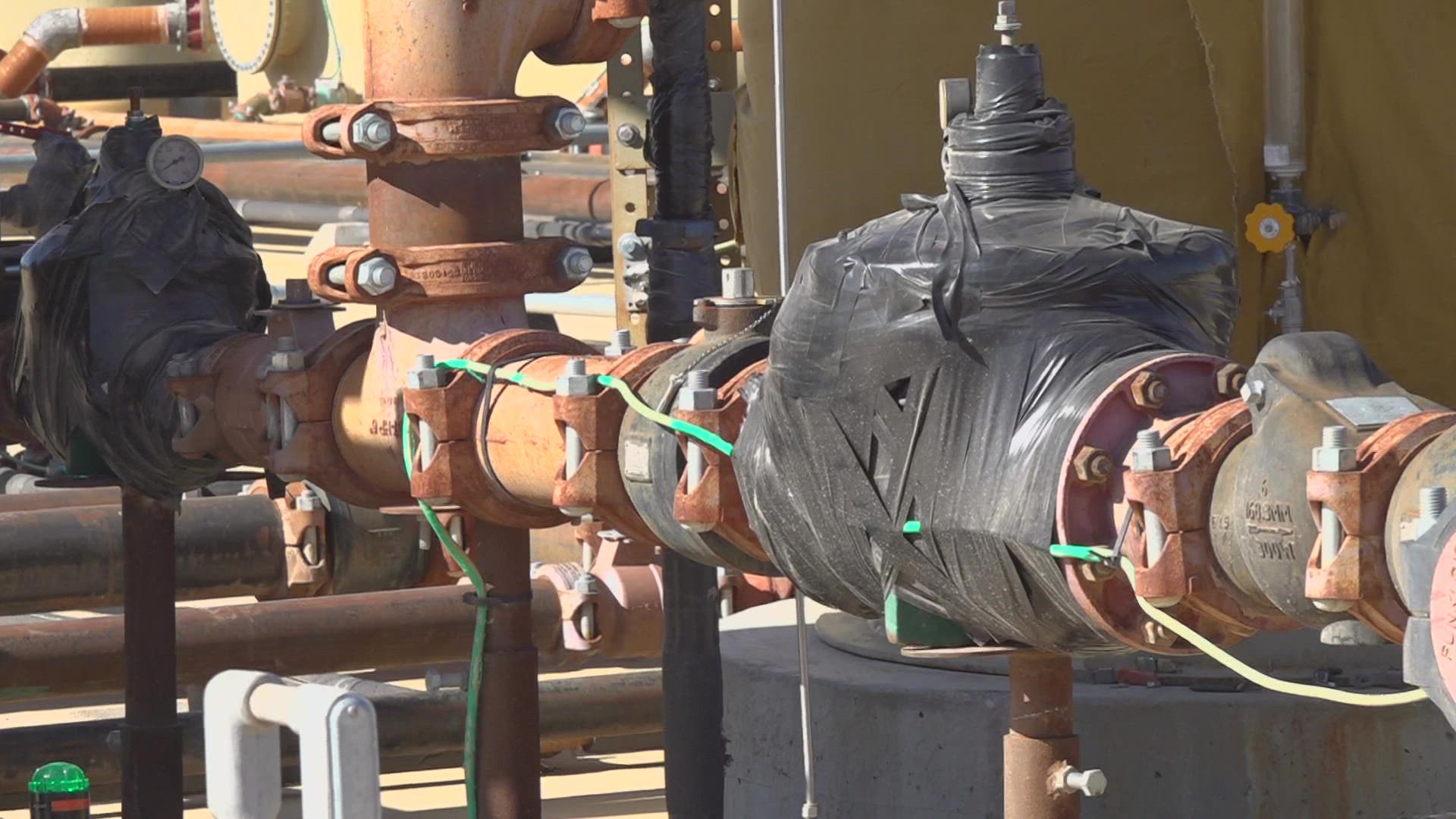MIDLAND, Texas — The Railroad Commission updated their regulations that require natural gas companies to weatherize their facilities so we don't see anymore of the problems we did during Winter Storm Uri.
A lot of these technologies have been in place for years just to keep these facilities running and efficient, but now companies can face consequences if they don't comply with this new Weather Emergency Preparedness Standards rule.
Extreme hot and extreme cold can cause problems for oil and gas facilities which is why it's important be prepared for any type of weather.
"You know industry wide they have invested hundreds of millions of dollars of manpower and equipment to do things like we're seeing today to make certain that throughout the industry we can do things to deliver," said Todd Staples, President of the Texas Oil and Gas Association.
And starting December 1, it's required.
"Railroad inspectors will be looking at sites like this to make sure they've done appropriate steps to make sure that natural gas is going to be delivered and the good news is, is that it's working," said Staples.
Facilities use different types of technologies to prevent freezing.
"We're able to utilize the heat tape to keep the liquid from freezing in the bottom of the pipe, and then we use wraps and insulation that go over the tops of that. We use structures with tarps around the outside of them to prevent the cold wind from hitting it," said Arica Gonzalez, Facilities Engineering Supervisor for Diamondback.
They also use chemicals to prevent freezing and continue to monitor temperatures. A lot of these techniques have been used prior to last year's storm.
"We do it a little more in a wide spread manner and we learned a lot in Winter Storm Uri that was such a unique experience that we were able to see results in a very magnified way, but we were really excited to see a lot of what we did protected us until we had a power outage but I think we got to see a lot of what we were doing in winter storm Uri was working really well," said Gonzalez.
"Our studies have shown that if you keep the power on to facilities like this and to the related systems that are necessary to support it, the injection wells and those types of things that even during extreme conditions you may lose 10 to 30% of the production but the vast majority of the production will continue," said Staples. "The Texas natural gas system is winter ready."
Weatherization also helps workers so that they don't have to come out to sites when it's snowing unnecessarily. Consequences for not following this Weather Emergency Preparedness Rule could be to up to a $1 million fine.

